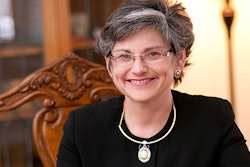University of New Mexico Changing Name of Chicano Program
ALBUQUERQUE, N.M.
The University of New Mexico’s Chicano studies program, begun in 1971 during the activism movement of the 1960s and 1970s, is becoming the Southwest Hispanic studies program.
Its director, Dr. Enrique Lamadrid, said the new name will be published in UNM’s catalog for the fall.
The change recognizes that most New Mexicans of Spanish descent identify themselves as Hispanic rather than Chicano, and “Southwest Hispanic” is a term that doesn’t have to be explained, Lamadrid said.
He said the name change won’t affect the program’s emphasis on teaching the language, literature, history and culture of Spanish-speaking people in the United States.
Dr. F. Chris Garcia, a professor who specializes in Hispanic politics at UNM, said the term Chicano is tied to “a lot of emotional baggage.”
Chicano long referred to poor people, largely of mixed Spanish and Indian descent, and was “a bit of a pejorative term,” he said. Then the word became a rallying cry for civil rights. “It has continued to imply activism and pride in culture,” Garcia said. “Pride in mixed culture. Pride in being Brown.”
He would not give an opinion about the name change, but agreed with Lamadrid that the term Chicano is not used as much as it used to be.
“Hispanic is by far the preferred term nationally, but especially in New Mexico,” Garcia said.
UNM’s student newspaper, the Daily Lobo, published a letter by former UNM student Arturo Sandoval, who urged students to oppose the name change.
“Being Chicano is taking back our identity, taking back our history.”
— The Associated Press
© Copyright 2005 by DiverseEducation.com


















